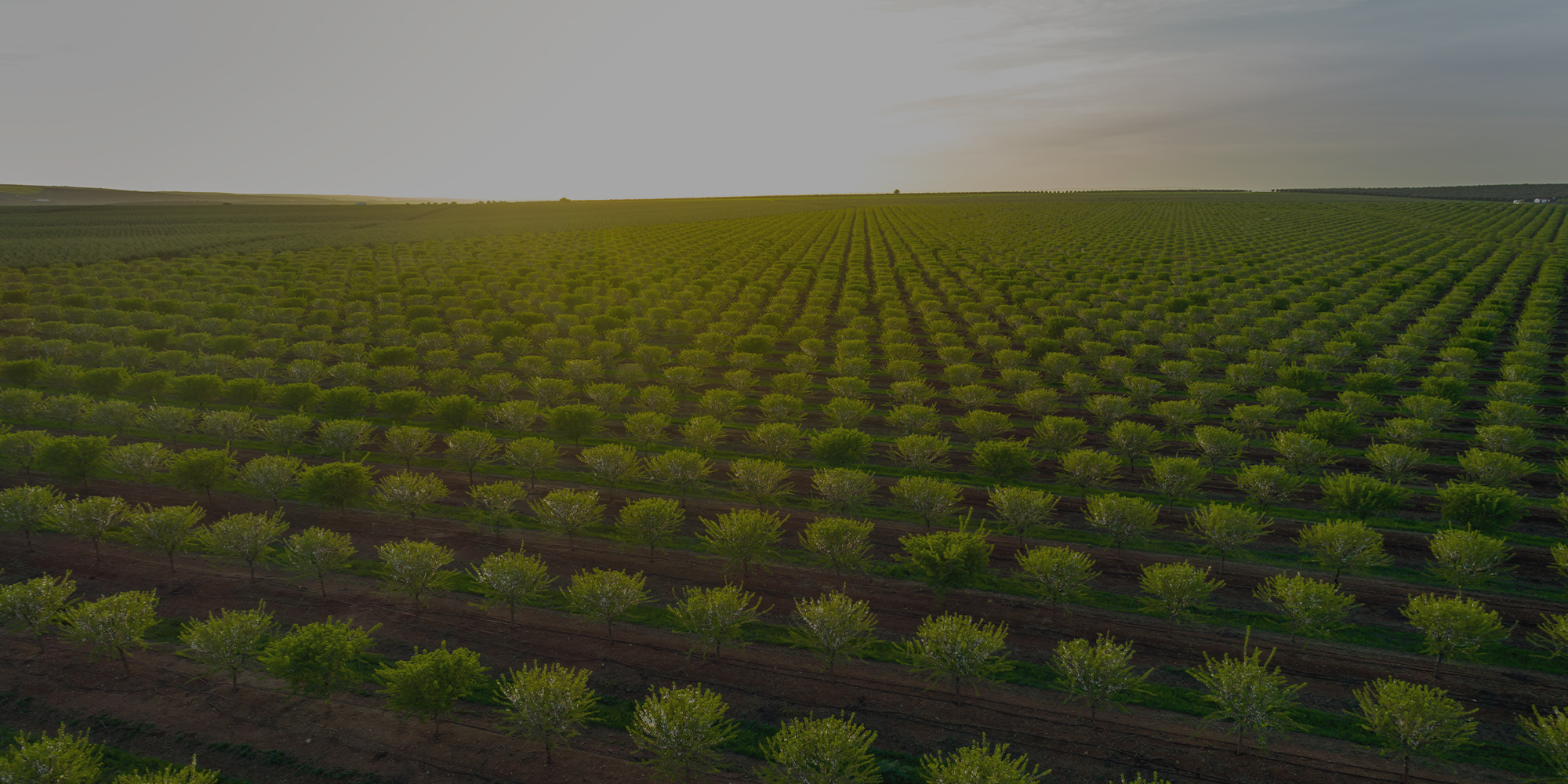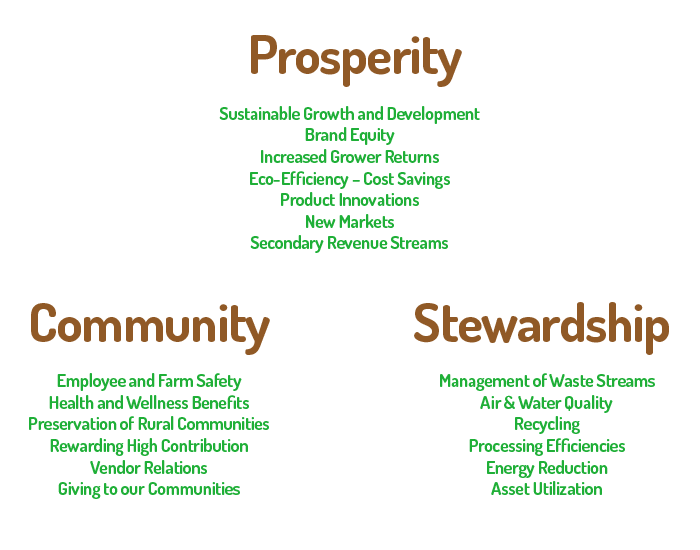
Sustainability
JSS Almonds serves over 15,000 acres.
JSS Almonds is a grower and processor of whole and natural California almonds.
JSS Almond’s dedicated growers and employees have been producing high-quality nutritious almonds in a responsible manner for many years.
For the more than 60 growers who provide almonds for JSS products, almond farming is not simply a job, it is a way of life. Many of our farms are multi-generational and their families and our employees are woven into the fabric of our communities.
The sustainability picture of the JSS supply chain encompasses the intersection of long-term economic prosperity, environmental stewardship, and community responsibility. Fundamentally, we are not seeking short-term gain at the expense of sound environmental stewardship and being a good community citizen. It is all about capitalizing on the benefits that complement all three circles of sustainability.

STRATEGIC COMMITMENT
Sustainability is a fundamental means by which we achieve our strategic objectives. Sustainability performance is rapidly becoming a mainstream strategic platform in the tree nut industry, with a primary aim of improving consumer confidence. Our leadership team demonstrates commitment to this platform through embedding many of the above actions into our reporting and objectives. In addition, we see our sustainability actions and results as core supplier requirements of our most coveted global customers. We are proud of our progress and will actively pursue continued improvement in all facets.
Key Focus Points
Air Quality
The use of electric-powered forklifts for internal use helps to minimize the generation of exhaust fumes within indoor locations.
We utilize many best practices in minimizing fugitive dust emissions. Through the use of pneumatic conveying systems that use baghouses to filter the dust generated in our processing operations, and low-impact shakers, sweepers, and harvesters out in the orchards, we make every attempt to minimize the effect of particulate matter in the harvest and processing of almonds.
Through heavy reliance on electronic sorting equipment, we greatly reduce our dependency on mechanical cleaning and the inherent pneumatic dust control systems involved.
Growth in Energy Self-Sufficiency
In 2015 we invested in a 327-kilowatt solar power system that produced ample energy at the time to achieve 75% self-sufficiency.
To accommodate our steep growth trajectory, in 2020 we approved a second phase vast solar array, adding another 417 – kilowatt system that will yield ample renewable energy to make up 95% self-sufficient. Phase 2 is targeted for commissioning Spring 2022.
Conservation on the Farm
Our growers who are family farms are committed to long-term sustainability for future generations. You can see the importance of future generations in that many of our farmers has been farming for over 100 years.
Analyzing the soil and leaves from almond trees has enabled us to only apply the fertilizer the almond tree needs, preventing fertilizer pollution of our streams and lakes.
Over the last 20 years, almonds have reduced water usage by 33% with the use of micro-irrigation, soil sensors, and satellites imagery.
The new harvesters that are being purchased have reduced the Dust Particle PM10mg/m3 by many folds. Diesel engines are now Tier 4 Final. These new diesel engines reduce PM and NOx by over 90%.
Many farmers are eliminating gasoline ATVs and replacing them with Electric ATVs. Diesel wells have been converted to electric wells to reduce fossil fuel emissions. As a result of the increased demand for electricity, farmers have also installed solar systems to help power the electric wells. At the end of a 25-year life of an almond tree, they are ground up and incorporated into the soil. This process sequesters 5.4 metric tons of carbon per hectare.
Being that each almond requires pollination, protecting honeybees and native pollinators have been extremely important to almonds. Instead of broad-spectrum pesticides, growers have switched over to reduced risk pesticides to preserve biological pest control.
Processing Efficiency
WAITING FOR THIS SEGMENT TO BE WRITTEN…
Employee Well-Being
Our employees are by far our most important asset. We care about their health and well-being and endeavour to provide the best possible work environment for all.
At JSS Almonds, we invest in our employees, continuously training and developing them so that they can have the skills needed to maintain high-quality standards throughout our operations. We are committed to offering wages and benefits competitive with industry standards, and because retaining key talent is a priority for us we focus on promoting from within.
We are always striving to provide the best possible work environment – one that is safe, diverse, equitable, inclusive and values-driven.
At JSS, we believe our best work is only possible when we take care of each other, and that includes our well-being.
We offer a variety of benefits, which include:
> Health Insurance
> Dental Insurance
> Vision Insurance
> Life Insurance
> Paid time off
> Paid Sick Leave
> Holidays
> 401K Program
JOURNEY THAT LIES AHEAD
In order to best institutionalize the strategic sustainability aim, we are now in the process of developing Key Performance Indicators that span the three circles of economic prosperity, environmental stewardship and community/social responsibilities.
Baseline metrics may include the following:
> Direct economic value generated and distributed
> Direct CO2 emissions per shipped pound
> Non-renewable energy consumption (KWH per pound produced)
> Total financial contributions
> Annual hours of employee training

